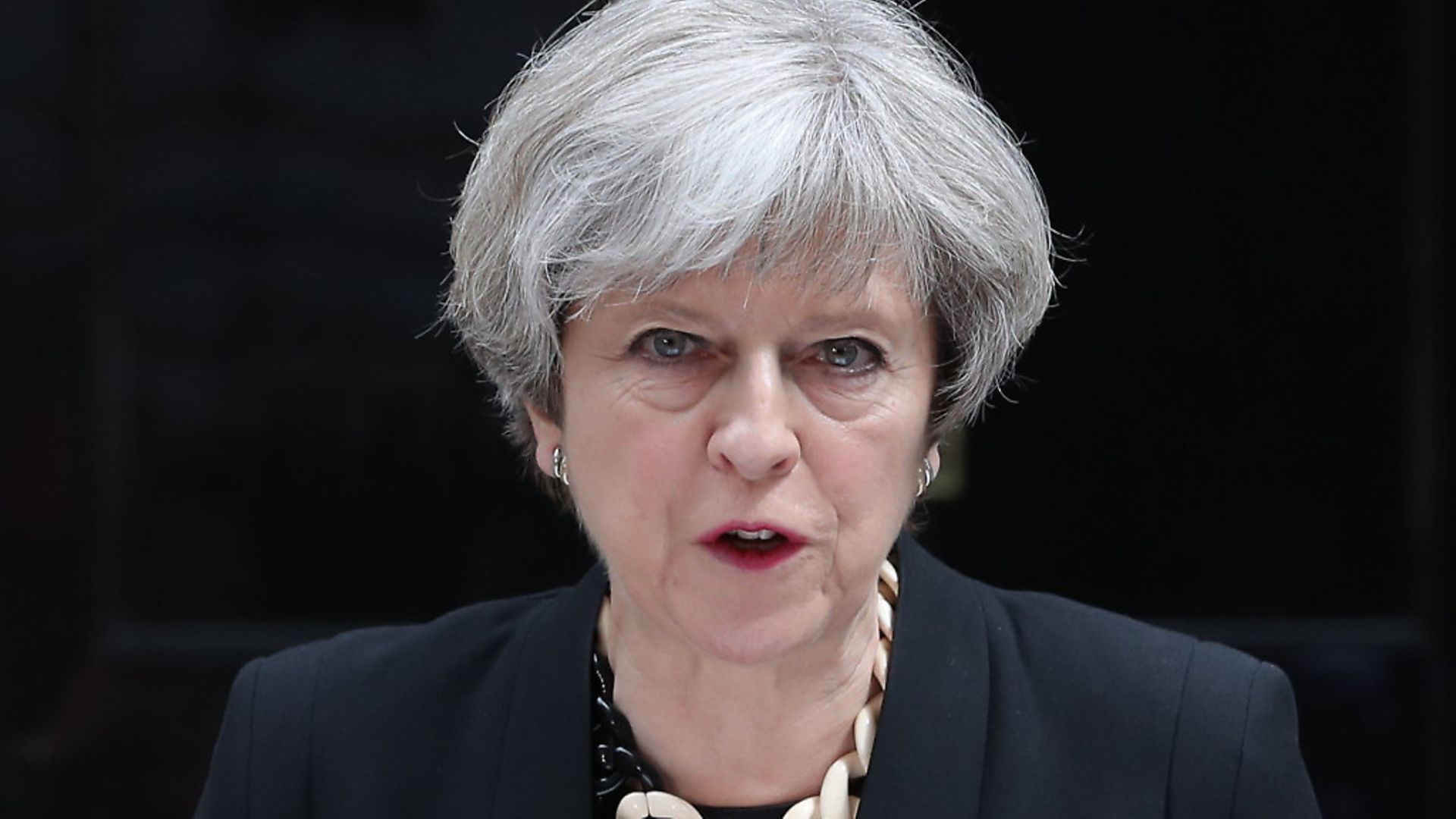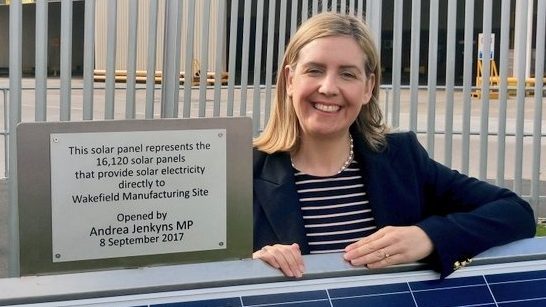
The London Bridge terror attack is set to bring heightened pressure on internet firms to end so-called ‘safe spaces’.
Speaking after seven people were killed and 48 injured when three terrorists rammed their van into pedestrians on London Bridge before going on a knife rampage through nearby Borough Market, Theresa May accused internet firms of giving terrorist ideology ‘the safe space it needs to breed’.
The most recent attack is the third in Britain in three months after a similar attack in Westminster and a suicide bombing at Manchester Arena.
The Prime Minister’s attack is arguably the strongest intervention yet by senior Conservatives against the likes of Facebook, Microsoft, Google and Twitter for their role in allowing extremist material to spread online.
The Tory manifesto for the General Election was particularly strong in calling for a much tougher approach to regulation on the internet.
Speaking outside Downing Street in the wake of Saturday’s attack, May said that ‘we cannot allow this ideology the safe space it needs to breed’.
She added: ‘Yet that is precisely what the internet, and the big companies that provide internet-based services provide.
‘We need to work with allied democratic governments to reach international agreements that regulate cyberspace to prevent the spread of extremist and terrorism planning.
‘And we need to do everything we can at home to reduce the risks of extremism online.’
The tone echoes that outlined in the Conservative manifesto, which said Britain would be ‘the global leader in the regulation of the use of personal data and the internet’.
The flagship policy document said the same rules that govern our lives offline should apply online.
This included introducing a responsibility on the industry not to direct users to things like hate speech, even unintentionally, and pushing internet companies ‘to deliver on their commitments to develop technical tools to identify and remove terrorist propaganda’.
The Open Rights Group is campaigning against the expansion of powers and has warned vulnerable groups will have their safety compromised. A spokesman said: ‘The UK Home Office already has some of the most aggressive surveillance powers in the world. This is nothing more than a power grab.’
Twitter says it shut down 376,890 accounts linked to terrorism in the last six months of 2016.
Of these, 74% were found by Twitter’s own software and only 2% as a result of requests by governments.
Professor Peter Neumann, director of the International Centre For The Study Of Radicalisation (ICSR) at King’s College London, used a series of posts on Twitter to criticise Mrs May’s speech.
‘Big social media platforms have cracked down on jihadist accounts, with result that most jihadists are now using end-to-end encrypted messenger platforms e.g. Telegram,’ he wrote.
‘This has not solved problem, just made it different.
‘Moreover, few people radicalised exclusively online. Blaming social media platforms is politically convenient but intellectually lazy.
‘In other words, May’s statement may have sounded strong but contained very little that is actionable, different, or new.’
Here is a summary of the main powers and tools currently deployed by authorities in the fight against terrorism:
:: Arrest and prosecution
Counter-terrorism arrests have been running at or close to record levels in recent years. Of the 260 arrests for terrorism-related offences last year, 96 had resulted in a charge by the middle of January. Of those, 79 were terrorism-related and 17 non-terrorism-related. Others were released without charge, or bailed.
:: Electronic surveillance
Security services can deploy a range of tactics under the Investigatory Powers Act. The techniques, which officials say are critical to national security investigations in the digital age, include: hoovering up data relating to phone calls, emails and text messages; intercepting suspects’ communications; and hacking into their devices such as smartphones and PCs.
:: Stops
Under the Terrorism Act, officers can stop individuals at ports, airports and international rail stations to determine whether they appear to be involved in terrorism. Last year, nearly 20,000 people were examined under this power.
:: Terrorism prevention and investigation measures
TPIMs are used in cases where someone who is judged to pose a threat to security cannot be prosecuted, or in the case of foreign nationals, deported. Subjects can be placed under restrictions including relocation to another part of the country, wearing an electronic monitoring tag and limited use of computers and phones. At the end of November last year, there were seven TPIM notices in force.
:: Measures to disrupt the return of fighters
Authorities can call on a number of powers to block or manage the return of UK citizens or foreign nationals suspected of engaging in terrorist activity abroad.
:: Powers to seize passports or deprive citizenship
Police can temporarily confiscate the travel documents of people suspected of intending to travel to engage in terrorism-related activity abroad.
:: Air strikes overseas
The Government says it is vital for the UK to retain the right to deploy lethal force in self-defence and as a last resort against terror targets abroad. In September 2015, it emerged that an RAF drone had killed two British jihadists in Syria the month before.
:: Anti-radicalisation schemes
The Prevent programme aims to intervene early and provide support for those deemed to be at risk of being drawn into violent extremism. There were around 7,500 referrals to the initiative in 2015/16. It has been credited with playing a role in disrupting more than 150 attempted journeys to Iraq and Syria. Home Secretary Amber Rudd said there would be an ‘uplift’ in the programme.









